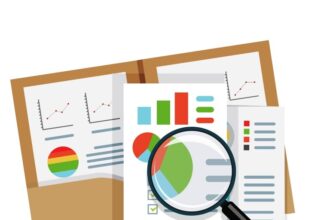In order to prepare for the cooking gauntlet that often occurs with the end of year holiday season, I decided to purchase a new rotisserie oven. The folks at Acme Rotisserie include a large amount of documentation with their rotisserie. I reviewed the entire pile and was a bit surprised by the warranty registration card. The initial few questions made sense: serial number, place of purchase, date of purchase, my home address. The other questions struck me as a bit too inquisitive: number of household occupants, household income, own/rent my residence, marital status, and education level. Obviously, this card was a Trojan horse of sorts; provide registration details –and all kinds of other personal information. They wanted me to give away my personal information so they could analyze it, sell it, and make money off of it.
Companies collecting and analyzing consumer data isn’t anything new –it’s been going on for decades. In fact, there are laws in place to protect consumer’s data in quite a few industries (healthcare, telecommunications, and financial services). Most of the laws focus on protecting the information that companies collect based on their relationship with you. It’s not the just details that you provide to them directly; it’s the information that they gather about how you behave and what you purchase. Most folks believe behavioral information is more valuable than the personal descriptive information you provide. The reason is simple: you can offer creative (and highly inaccurate) details about your income, your education level, and the car you drive. You can’t really lie about your behavior.
I’m a big fan of sharing my information if it can save me time, save me money, or generate some sort of benefit. I’m willing to share my waist size, shirt size, and color preferences with my personal shopper because I know they’ll contact me when suits or other clothing that I like is available at a good price. I’m fine with a grocer tracking my purchases because they’ll offer me personalized coupons for those products. I’m not okay with the grocer selling that information to my health insurer. Providing my information to a company to enhance our relationship is fine; providing my information to a company so they can share, sell, or otherwise unilaterally benefit from it is not fine. My data is proprietary and my intellectual property.
Clearly companies view consumer data to be a highly valuable asset. Unfortunately, we’ve created a situation where there’s little or no cost to retain, use, or abuse that information. As abuse and problems have occurred within certain industries (financial services, healthcare, and others), we’ve created legislation to force companies to responsibly invest in the management and protection of that information. They have to contact you to let you know they have your information and allow you to update communications and marketing options. It’s too bad that every company with your personal information isn’t required to behave in the same way. If data is so valuable that a company retains it, requiring some level of maintenance (and responsibility) shouldn’t be a big deal.
It’s really too bad that companies with copies of my personal information aren’t required to contact me to update and confirm the accuracy of all of my personal details. That would ensure that all of the specialized big data analytics that are being used to improve my purchase experiences were accurate. If I knew who had my data, I could make sure that my preferences were up to date and that the data was actually accurate.
It’s unfortunate that Acme Rotisserie isn’t required to contact me to confirm that I have 14 children, an advanced degree in swimming pool construction, and that I have Red Ferrari in my garage. It will certainly be interesting to see the personalized offers I receive for the upcoming Christmas shopping season.







